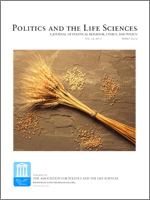In this engaging talk given last February on a particularly cold and blustery day at Texas Tech University, Professor Gad Saad of Concordia University discusses his work in the area of evolutionary consumption. In making the case for understanding consumerism from a Darwinian perspective, Saad addresses several key tenets from his books The Consuming Instinct1 and The Evolutionary Bases of Consumption.2 In particular, Saad argues that: (1) many consumption acts can be mapped onto four key Darwinian modules (survival, mating, kin selection, and reciprocal altruism); and, (2) cultural products such as song lyrics and movie plotlines are fossils of the human mind that highlight a shared, biologically based human nature. In this wide-ranging inquiry, Saad summarizes several of his other empirical works, including the effects of conspicuous consumption on men's testosterone levels3 and how the ovulatory cycle in the human female influences consumption.4 Overall, Professor Saad contends that an infusion of evolutionary and biologically based perspectives into the discipline of consumer behavior and related government regulatory policies yields myriad benefits, notably greater consilience, more effective practices, an ethos of interdisciplinarity, and methodological pluralism.
BioOne.org will be down briefly for maintenance on 17 December 2024 between 18:00-22:00 Pacific Time US. We apologize for any inconvenience.
ACCESS THE FULL ARTICLE
It is not available for individual sale.
This article is only available to subscribers.
It is not available for individual sale.
It is not available for individual sale.

Politics and the Life Sciences
Vol. 32 • No. 1
Spring 2013
Vol. 32 • No. 1
Spring 2013




